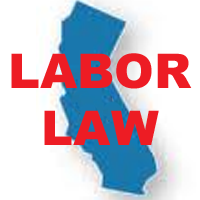 The law has also been the subject of multiple court challenges, many of which deal with the validity of employment arbitration agreements, a subject dear to the hearts of many employer groups. But, PAGA also has detractors among workers’ groups, many of which object to provisions that allocate 75 percent of penalties collected to California’s Labor and Workforce Development Agency (LWDA) and to the payment of attorneys’ fees.
The law has also been the subject of multiple court challenges, many of which deal with the validity of employment arbitration agreements, a subject dear to the hearts of many employer groups. But, PAGA also has detractors among workers’ groups, many of which object to provisions that allocate 75 percent of penalties collected to California’s Labor and Workforce Development Agency (LWDA) and to the payment of attorneys’ fees.How PAGA works
At the outset, it is important to recognize that the primary purpose of PAGA is to strengthen California labor law by essentially “crowd sourcing” enforcement. To that end, the law gives “aggrieved employees” a simplified and less expensive process for filing a representative lawsuit. The process has several steps.
First, employees file a PAGA claim online with the LWDA. These may include claims for minimum wage and overtime violations as well as other forms of wage theft. It costs $75 to file a PAGA notice, but the filing fee can be waived. This filing, which is served on the employer via certified mail, includes essential details but is otherwise relatively brief.
Next, the LWDA has 65 days to decide whether to pursue the case. If the LWDA pursues the case and the workers are successful, 75 percent of the statutory penalties collected go to the LWDA, and the remaining 25 percent is shared among affected employees. The law also provides for an award of reasonable attorneys’ fees.
The penalty for the first violation of California’s labor and employment laws is $100. After that, the penalty is $200 for each subsequent violation. The penalties seem modest at first glance, but it is important to realize that violations are counted on a per person/per instance basis often over a period of years. The sums can rapidly become astronomical for a large class of affected employees.
If the LWDA declines to pursue the case, the employees can proceed with the lawsuit in civil court. Any award is divided among them with no allocation to the LWDA. The workers alone bear the financial burdens of the lawsuit.
Court challenges
PAGA has been the subject of considerable scrutiny, particularly in the context of arbitration agreements. In 2022, the U.S. Supreme Court in Viking River Cruises v. Moriana upheld the enforceability of arbitration agreements that prohibit PAGA claims. In Adolph v. Uber Technologies, Inc., on the other hand, the California Supreme Court allowed non-individual PAGA claims to proceed after arbitration.
Employers argue that the status of standardized employment agreements to arbitrate labor law complaints is unclear. Workers argue that the enforceability of these mandatory agreements must be limited to allow them to pursue wage and hour claims in a neutral forum.
Changes under the FPEAA
In contrast, the FPEAA would:
- double statutory and civil penalties for willful violators;
- require that 100 percent of monetary penalties be awarded to harmed employees;
- provide resources to employers to ensure labor compliance;
- require the Division of Labor Standards Enforcement to be a party to all labor complaints;
- likely increase state costs to enforce labor laws and reduce state penalty revenue used for enforcement by the tens of millions of dollars annually; and
- eliminate attorneys’ fees entirely.
Criticism on both sides
In general, labor groups support PAGA because it bulks up capacity for the state LWDA. The attorneys who bring these cases on behalf of workers and collect legal fees are also fans of the status quo. On the other hand, many California employees express concerns that PAGA primarily benefits attorneys at the expense of workers, as attorneys often receive a large portion of the settlement, leaving little for those harmed.
READ MORE CALIFORNIA LABOR LAW LEGAL NEWS
Partisan voices are already in full cry over efforts to repeal and replace PAGA. The initiative, which qualified for the 2024 ballot, is the product of nearly two years of employer efforts. It would be unfortunate if the ballot question slipped out of sight in an already contentious election year.
